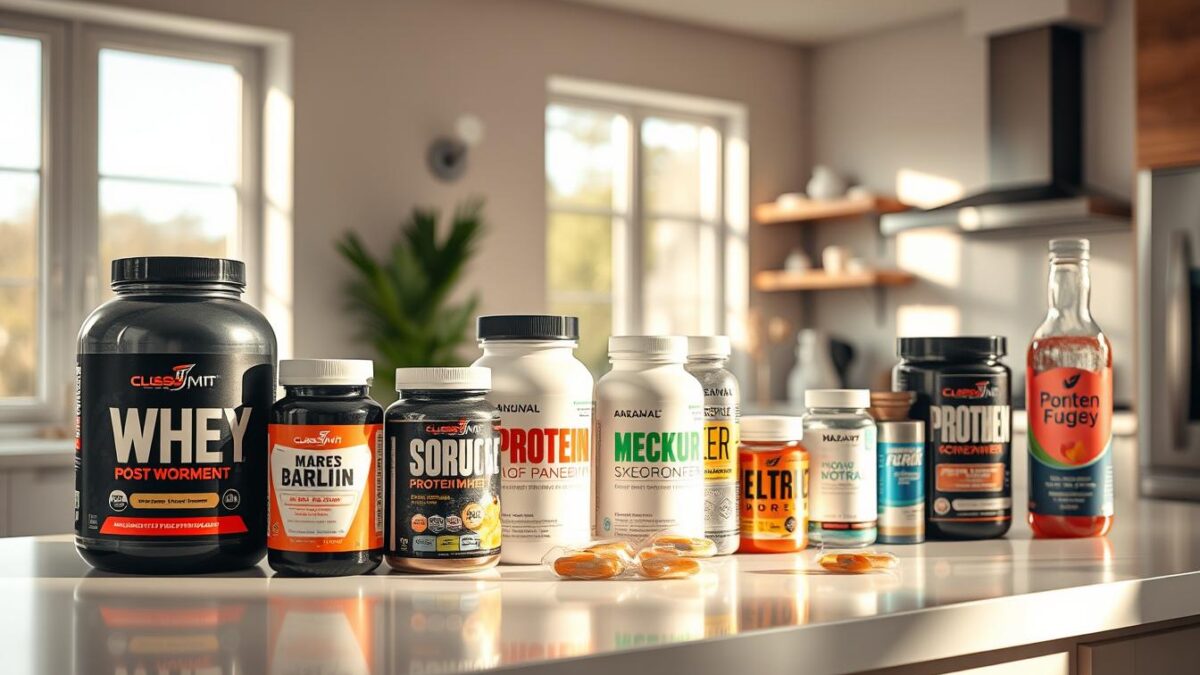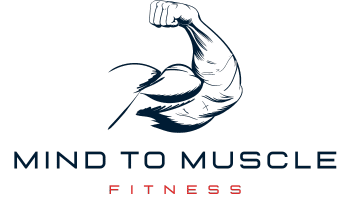
Best Timing to Take Supplements for Post-Workout Recovery
Are you curious about the best time to take supplements after working out? You’re not the only one. Many people find it hard to figure out when to take supplements to help their muscles recover and perform better. Learning about the right timing can change how you recover after a workout.
In this article, we’ll show you how to choose the best time for your supplements. This will help you get the most out of your fitness routine.
Understanding Post-Workout Recovery
The post-workout recovery process is key after exercise. It helps your body get back to its pre-exercise state. This includes fixing muscles, refilling energy stores, and drinking water.
Intense workouts can hurt muscle fibers, causing tiny tears. A good recovery plan is needed to fix these and get ready for the next workout. Knowing how hard you worked, how long, and your fitness level helps make a better plan.
Focus on recovery to get the most from your workouts. Learning about muscle repair helps you succeed in your fitness goals.
| Aspect | Description |
|---|---|
| Muscle Regeneration | Repair of micro-tears in muscle fibers, essential for strength gain. |
| Glycogen Replenishment | Restoration of energy stores depleted during exercise. |
| Hydration Restoration | Replenishment of fluids lost through sweat. |
| Nutrition Impact | Influence of food choices on recovery efficiency. |
| Recovery Timing | Duration between workouts that affects muscle healing. |
The Importance of Proper Nutrition
Proper nutrition is key for post-workout recovery. When you do intense exercise, your body needs the right food to fix muscles. A balanced diet, full of protein and carbs, helps a lot. Protein gives your body the amino acids it needs to fix and build muscles. Carbs help refill energy stores, which is good for recovery.
Eating nutrient-rich foods after working out is important. Bad nutrition can slow down muscle repair and make you tired longer. Listen to your body and eat a mix of proteins and carbs soon after exercise. Remember, no supplement can beat a healthy diet and enough rest. Good nutrition helps your body recover and repair muscles better.
Key Factors in Recovery Time
Recovery time is key to your fitness journey. Several factors can affect how fast you recover after working out. Exercise intensity is one of them. High-intensity workouts can leave you feeling tired for up to 72 hours. Lighter workouts, on the other hand, help you recover faster.
Hydration is also important. Drinking enough water helps your muscles repair and reduces soreness. Make sure to drink fluids before, during, and after your workouts.
Sleep is often overlooked but is very important. Quality sleep helps your body repair and improves your performance. Try to get 7-9 hours of sleep each night.
Knowing these factors can help you manage your workouts better. It also helps you set realistic goals for your progress.
Common Nutritional Supplements for Recovery
Nutritional supplements can really help your fitness journey, mainly during recovery. They offer a boost that can improve your performance. Key supplements include protein powders, creatine, electrolytes, and amino acids.
While eating whole foods is best, supplements are a handy alternative. They’re great for filling dietary gaps, post-workout. Whey and plant-based proteins are top choices for muscle repair. Creatine is also popular for boosting strength and speeding up recovery.
Using these supplements wisely can greatly help your recovery after exercise. Here’s a quick look at some common supplements for recovery:
| Supplement | Benefits | Recommended Use |
|---|---|---|
| Whey Protein | Muscle repair and growth | Take within 30 minutes after workouts |
| Plant-Based Protein | Suitable for vegans, muscle repair | Take within 30 minutes after workouts |
| Creatine | Improved strength, recovery enhancement | Daily, post-workout |
| Electrolytes | Rehydration, balance of fluids | During and after workouts |
| Amino Acids | Reduced muscle soreness, recovery | Before or after workouts |
With the right mix of supplements, you can support your recovery and make every workout more effective.
Benefits of Protein After Exercise
Protein is key in your post-workout routine. It helps a lot with muscle repair and growth. Eating protein after working out is important for quick recovery and better performance.
Muscle Repair and Growth
Workouts cause tiny tears in your muscles. These need to be fixed for growth. Protein helps a lot with this.
Studies show eating about 1.6 grams of protein for every kilogram of body weight after exercise is important. It helps fix muscles and grow them.
Recommended Protein Sources
Choosing the right protein sources after your workout is important. Here are some good options:
- Lean meats like chicken and turkey
- Fish such as salmon or tuna
- Dairy products like Greek yogurt or cottage cheese
- Plant-based proteins including lentils, chickpeas, and quinoa
- Protein powders, such as whey or casein, for convenience
Getting enough protein from these sources helps fix muscles and supports your fitness goals.
Supplement Timing for Recovery
The timing of your supplements is key for post-workout nutrition and recovery. Experts talk about the “golden hour” after your workout, lasting about 30 minutes. This is when your body best absorbs nutrients, making it great for protein and carbs.
Protein is essential for muscle repair, and carbs help refill glycogen stores. To get the most benefits, mix these nutrients together. Even if you can’t take them right away, supplements can help based on your diet and workout level.

Role of Carbohydrates in Post-Workout Recovery
Adding carbohydrates to your post-workout routine is key for recovery. High-intensity workouts or endurance training use glycogen in muscles for energy. After working out, it’s important to refill these glycogen stores. This helps with recovery and gets you ready for the next workout.
Eating the right carbs after a workout can boost your energy and performance.
Glycogen Replenishment
Carbs are essential for glycogen recovery after a tough workout. Eating carbs with protein speeds up this process. Studies show this combo helps refill glycogen stores faster, benefiting athletes and fitness lovers.
Focus on carbs after exercising to improve stamina for future workouts.
Optimal Carbohydrate Intake
Knowing how much carb to eat after a workout is important. Experts say to aim for 1-1.2 grams of carbs per kilogram of body weight in the first hour. Mixing simple and complex carbs can help glycogen recovery even more.
Good carbs for post-workout include:
- Bread or wraps with lean protein
- Fruits like bananas or berries
- Oats with milk or yogurt
- Rice or quinoa bowls
Hydration and its Impact on Recovery
Knowing how important hydration is is key for anyone who exercises. Dehydration can make recovery slower, affecting muscle repair and performance. It’s important to drink enough water before, during, and after working out.
When you’re recovering from dehydration, your body takes longer to get strong again. This can lead to feeling tired for longer and less motivation to exercise. A good rule is to drink about 1.5 liters of water for every kilogram you lose while exercising. This helps your body recover and perform better.
Drinking hydrating drinks can really help. Water is a great choice, but drinks with electrolytes are even better. They not only replace lost fluids but also give your muscles the minerals they need. Staying hydrated helps you build strength and endurance.
The Role of Creatine in Muscle Recovery
Learning about creatine’s role in muscle recovery can boost your workouts. It’s a key supplement that does more than just build strength. It helps reduce muscle damage and inflammation, speeding up recovery after hard exercise.
Effects on Muscle Damage
Studies show creatine can lessen muscle damage from tough workouts. It fills up ATP stores, giving muscles energy for quick, intense efforts. This not only boosts performance but also helps muscles heal faster, reducing soreness and quickening recovery.
Timing for Creatine Supplementation
When you take creatine matters a lot for recovery. Taking it right after your workout helps your body use it best. Adding carbs to creatine makes it even more effective, helping your body absorb nutrients and recover muscles better.
Utilizing Electrolytes Effectively
Electrolytes are key for keeping your body hydrated and muscles working right during exercise. When you sweat, you lose these important minerals. This can cause dehydration and muscle cramps, hurting your performance and recovery.
To use electrolytes well, add electrolyte supplements or drinks to your routine after working out. This helps replace lost fluids and minerals. It’s great for long workouts or when it’s hot outside. It keeps you hydrated and helps your body recover faster.
Choosing the right electrolyte supplement is important for recovery. Here are some good choices:
| Supplement | Main Electrolytes | Benefits |
|---|---|---|
| Gatorade | Sodium, Potassium | Restores energy and fluid balance |
| Nuun Tablets | Sodium, Potassium, Magnesium | Convenient hydration option for athletes |
| Tailwind Endurance | Sodium, Potassium, Calcium | Supports sustained energy while hydrating |
| Hydralyte | Sodium, Potassium | Helps with rapid rehydration |
Choosing the right electrolyte products is key for good hydration and recovery. By adding these supplements to your routine, you support your body’s needs after exercise. This helps improve your recovery efforts.
Benefits of Amino Acids Post-Workout
Amino acids are key for muscle repair and lessening soreness after working out. Branched-chain amino acids (BCAAs) are great for reducing muscle fatigue and helping with recovery. Adding amino acids to your routine can boost your performance and help reach your fitness goals.
Reducing Muscle Soreness
Intense workouts often lead to muscle soreness, making it hard to keep up with training. Amino acids have been shown to lessen soreness. They provide your muscles with the amino acids they need, leading to faster recovery and smoother workouts.
BCAAs in amino acids help repair muscles, speeding up recovery. This keeps you on track with your fitness plan.
Timing for Amino Acid Supplements
When you take amino acids can greatly affect their benefits. Taking them right after your workout is best. This timing helps your muscles start repairing quickly.
Following the right timing for amino acids supports your fitness goals. It also helps keep your workout schedule consistent.
Integrating Lifestyle Habits for Better Recovery
To improve your recovery, adopting healthy habits is key. Make sleep a priority, as it aids in muscle repair and growth. Try to get seven to nine hours of sleep each night.
Adding gentle exercises like walking or yoga is also important. These activities keep blood flowing and help muscles recover. Include them in your weekly routine to speed up recovery.
Don’t forget about managing stress. High stress can slow down healing. Try mindfulness or hobbies to lower stress levels. For tips on balancing fitness, check out this short phrase.
Lastly, staying hydrated is essential. Water helps move nutrients around your body, which is vital for recovery. Drink water all day and more before and after workouts.
Potential Pitfalls of Improper Supplement Timing
Timing your supplements wrong can really hurt your recovery. For instance, waiting too long to take protein after working out can make it tough to fix and grow muscle. This can lead to feeling tired for longer and more muscle soreness, which can undo all your hard work.
Another mistake is counting too much on supplements without eating right and staying hydrated. This can really limit how well you recover. Remember, supplements are meant to help, not replace, a healthy diet. Adding whole foods to your supplements can help you reach your fitness goals better.
To avoid poor recovery, think about how timing and food choices affect your performance. Being smart about when you take supplements is important for keeping your energy up and recovering well. With the right plan, you can make sure your body gets what it needs to recover stronger.



